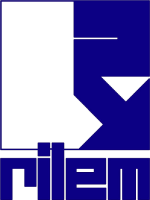Publications
Pro055
Photocatalysis: from fundamentals to self-cleaning glass applications
Author(s): Jean-Marie Herrmann, Laure Péruchon, Eric Puzenat, Chantal Guillard
Paper category : conference
Book title: International RILEM Symposium on Photocatalysis, Environment and Construction Materials - TDP 2007
Editor(s): P. Baglioni and L. Casssar
Print-ISBN: 978-2-35158-056-1
e-ISBN: 978-2-35158-057-8
Publisher: RILEM Publications SARL
Publication year: 2007
Pages: 41 - 48
Total Pages: 8
Language: English
Abstract: Photocatalysis only requires photonic energy to activate the solid (TiO2) by contrast with conventional catalysis which requires heat for thermo-activation. This is the basical advantage of photocatalysis for a large variety of environmental applications. Self-cleaning glass technology consists in depositing sub-micronic (i.e. invisible) thin layers of titania at the surface of glass, without decreasing light transmittance. The photocatalytic activities of these titania layers can be carefully determined “in vitro!”, using calibrated test-reactions such as the total degradation of malic acid in water or that of palmitic and stearic acids in the adsorbed phase. Tests based on dyes decolorization can be misleading.
In the real world, dirty glasses to be “self-cleaned” are soiled by greasy and sticky deposits, which, in addition, induce a strong adherence of ambient dusts. To mimic that, self-cleaning glasses were covered with palmitic and stearic acids. The linear aliphatic (i.e) hydrophobic chains are progressively “peeled off,” carbon atom after carbon atom, via successive “photo-Kolbe” reactions. The overall self-cleaning glass process can be strongly accelerated by by-passing many intermediates via the release of several volatile ones.
The efficiency of titania photocatalyst demands two requirements: (i) a good cristallinity (anatase phase) and (ii) a high (cationic) purity.
Online publication: 2011-07-01
Publication type : full_text
Public price (Euros): 0.00
>> You must be connected to view the paper. You can register for free if you are not a member


